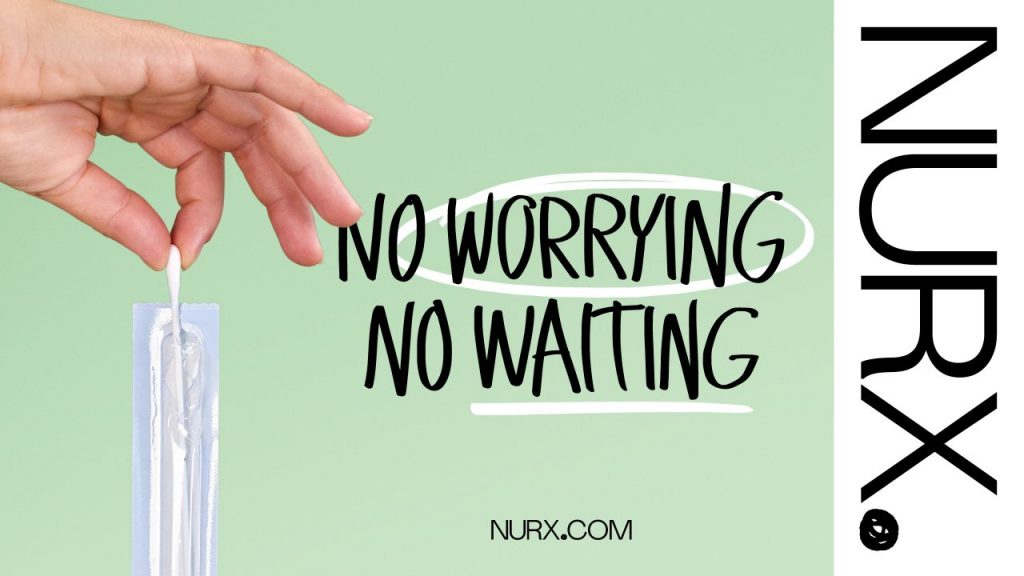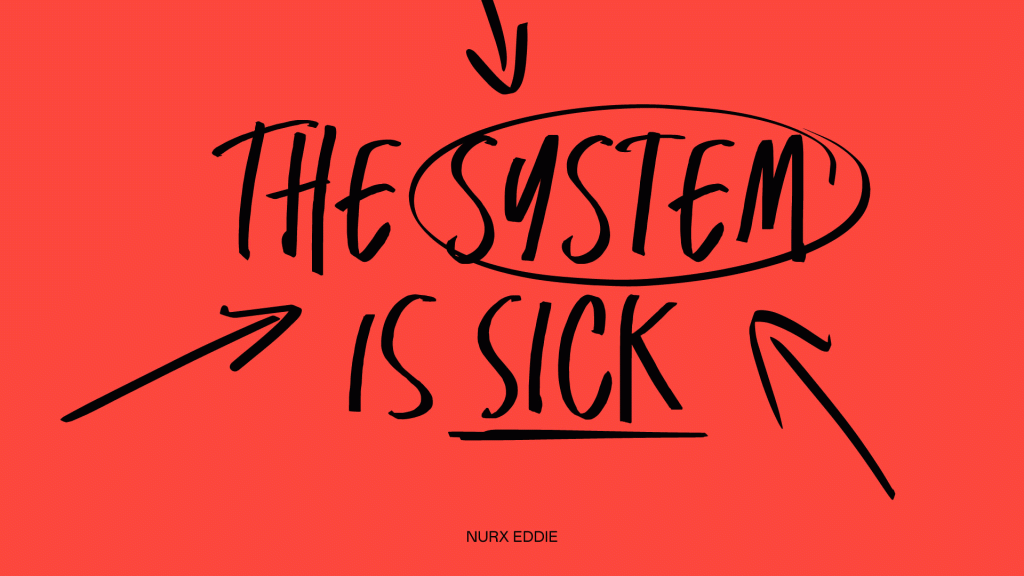In the wake of the coronavirus pandemic, women have experienced more than the direct physical, clinical impact of COVID-19: beyond “lives,” women’s livelihoods, financial health and emotional well-being have been hard-hit. This is true on both a global basis as well as in the United States.

In that context, last week I engaged in a fascinating conversation with Varsha Rao, CEO of Nurx, to discuss the current state of women and health/care in America, and some thoughts about the future.
If you’ve had the TV on sometime since March 2020, one of many millions of people in the U.S. spending more hours watching live television, you’ve probably seen an ad for Nurx. You know, the ones with women talking about the ease of ordering prescription medications online, at a reasonable cost and great convenience, “without ever leaving my couch,” as one of the Nurx clients describes her own experience.
Nurx isn’t “just” an ePrescribing tool, Rao explained to me. Nurx is now part of the growing telehealth landscape, offering clients access to health care providers for diagnosis, care and counsel that includes end-to-end medication ordering through to delivery to a person’s home.
This is offered at a relatively low cost, especially attractive to people who may have lost access to health insurance in the pandemic, Rao noted. Birth control via Nurx starts at $15 for a prescription. Nurx is also one of the few players in its marketspace that accepts health insurance.
 In the pandemic, we might jump to the conclusion that more older people have been impacted by physician office shutdowns and clinics pivoting care to all-COVID, all-the-time, rationing access for “elective” and non-emergent care.
In the pandemic, we might jump to the conclusion that more older people have been impacted by physician office shutdowns and clinics pivoting care to all-COVID, all-the-time, rationing access for “elective” and non-emergent care.
Nurx saw a 50% increase in birth control requests since March, a growth rate on 20% month-on-month since the start of the public health crisis. The company has also seen high growth for sexually transmitted disease testing, emergency contraception, and herpes care.
In Nurx’s early growth phase, the platform was built for females age 20 to 40 years old. As the company matures, Nurx is expanding into hormonal related conditions, the first area being migraine.
Pre-COVID, finding accessible, convenient care to deal with migraines was difficult; the pandemic has exacerbated that supply side of migraine care, especially as the pandemic has been so challenging for anxiety and stress in daily living, dealing with the pressures of pandemic-era living. In this environment, Rao believes, Nurx has been “a real haven for people to get care” to deal with migraines.
One interesting artifact of the pandemic will be how the crisis will impact fertility and birthrates in the U.S. Rao believes we’ll see a “baby bust,” with young women making the decision to delay motherhood for a while. One of the key factors underpinning this is financial uncertainty and, of course, people wanting to avoid going to the doctor for the time being.
 Because of that, Nurx has also been an important, accessible, and physically safe resource for women seeking emergency contraception.
Because of that, Nurx has also been an important, accessible, and physically safe resource for women seeking emergency contraception.
The pandemic has also found university students attending college remotely, away from physical campuses where women had accessed contraception from university health centers.
This has created tremendous demand for college-age women to access birth control through Nurx and other channels that enable her to continue her course of treatment without a lapse.
Nurx found that demand to quickly grow in the wake of the COVID-19 crisis, compelling the company to create a college health hub on the website. It’s all about health education, from how to have safe sex during COVID and other subjects of interest to Gen Z and others seeking counsel for women’s health self-care.
Looking to 2021 and a post-pandemic America, Rao believes several durable habits are being created “now” that will last. One is that younger people may be willing to pay a convenience feel to access care on their terms. Furthermore, the remote work movement will persist for many companies, where women who are newly relying on virtual health care programs will continue to engage with them. One review from a patient-client on the Nurx site noted that, “Nurx is great for people like me who often move and don’t have a regular OBGYN.” Rao believes this is another market segment that will last beyond the virus abates.
Finally, self-care will continue to grow. Before the pandemic, self-care had taken off, with more young people wanting more control of their health. Nurx collaborates with health care providers as part of the larger health care ecosystem and at the same time will continue to support people for self-care.
Rao noted that there is a trust factor that has changed with the pandemic-era evolution of telemedicine. Two years ago, patients didn’t trust telemedicine as such – wondering, “are there ‘real’ doctors?” at the other end of the phone or computer screen. But that’s not even a factor anymore, Rao observed.
Nurx’s net promoter score is over 80, enviable for any consumer business let alone for a health care enterprise. Nurx was featured in a New England Journal of Medicine peer-reviewed essay on the quality of tele-contraceptive care, found to be at least as equal to in-person local clinics by Harvard researcher Dr. Ateev Mehrotra and colleagues.
The pandemic has certainly bolstered Nurx’s original core business, expanding the telehealth platform beyond contraception into a broader continuum of women’s health care.
 Health Populi’s Hot Points: Nurx’s most recent ad and graphic theme was developed by
Health Populi’s Hot Points: Nurx’s most recent ad and graphic theme was developed by
In launching this new format, Nurx noted that,
Now our new look reflects the bold, brave, and inspiring, demonstrating our commitment to fixing the healthcare system and providing you with the care you deserve.
Another interesting aspect to this approach was that in the photoshoots, real “actual” patients and medical providers participated in the sessions — with no retouching.
“The system is sick,” one message screams on a blood-red background. This judgment call resonates with many patients who feel that way, trying to navigate the labyrinthine, Rube Goldberg complexity of the U.S. healthcare “system,” or pay for care that a patient-consumer feels was not of value to them — whether the clinical care itself or the experience.
 Part of reimagining health care is re-designing the health consumer experience, for which Nurx’s NPS grade of 80 is the metric of success. Given that healthcare’s NPS in 2020 was 27 according to Retently’s research, Nurx ranks exceptionally high in the overall industry.
Part of reimagining health care is re-designing the health consumer experience, for which Nurx’s NPS grade of 80 is the metric of success. Given that healthcare’s NPS in 2020 was 27 according to Retently’s research, Nurx ranks exceptionally high in the overall industry.
Nurx’s score is also high relative to other industries outside of health care.
This is especially impactful because women are the chief healthcare officers of their families and households.
In our conversation, Rao cited several impacts the COVID-19 pandemic has exacted on consumer behaviors that will stay with us beyond 2020. One of these is peoples’ desire to receive health care on their terms, with respect, high levels of service, and based on value and a transparent price. Health care will increasingly become more retail-facing, delivered in the community, at-home and — I daresay, from the couch. Nurx is setting patient experience standards for this next-normal in health/care.





 Thanks to Feedspot for naming this blog, Health Populi, as a
Thanks to Feedspot for naming this blog, Health Populi, as a